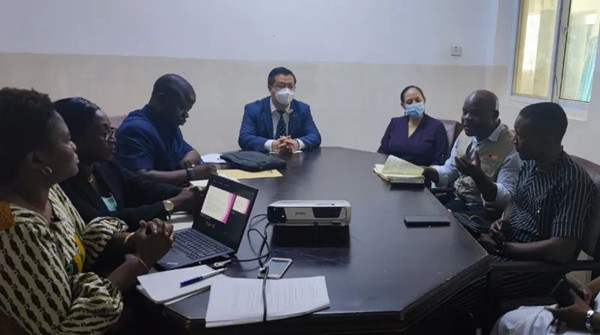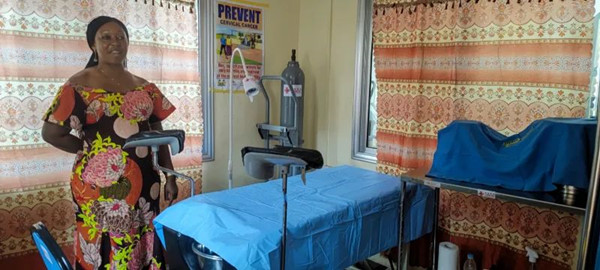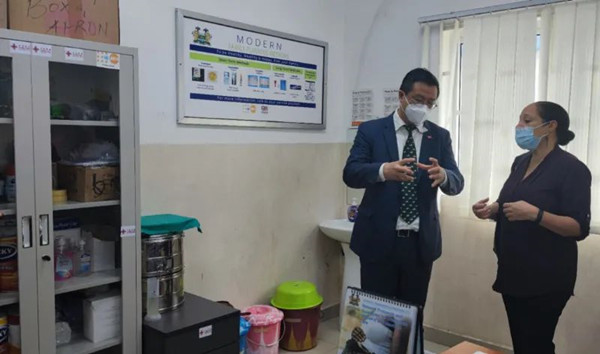China-aided Sierra Leonean cervical cancer screening and treatment project makes big strides

Li Xiaoyong, chargé d'Affairs ad interim of the Embassy of China in Sierra Leone, together with United Nations Population Fund (UNFPA) Representative in Sierra Leone Nadia Rasheed and Francis Moses, programme manager for reproductive health and family planning at the Ministry of Health and Sanitation of Sierra Leone, visited China-aided cervical cancer screening and treatment facilities in Sierra Leone on Aug 19.
They visited the King Harman Maternal and Child Health Hospital and the Ross Road Community Health Centre to learn about the progress made in the cervical cancer screening and treatment project, which has been funded by the Global Development and South-South Cooperation Fund initiated by China. They also had exchanges with the medical staff and some patients.
Li said that health and medicine are a major cooperative area between China and Sierra Leone, and that the two countries' people have cultivated a profound friendship in the fight against the virus.

China has been steadfast in supporting Sierra Leone in improving its medical service infrastructure and system construction, and assisting the country in enhancing its prevention and treatment capacity for infectious diseases and chronic non-communicable diseases, said Li.
Through the cervical cancer screening and treatment program, China has helped Sierra Leone draft a national cervical cancer prevention and control plan and supporting technical guidelines for the first time. It has also helped establish the first nine medical institutions for cervical cancer screening in Sierra Leone, which is an important contribution to the building of a universal cancer prevention and control system and to reducing incidence of cervical cancer, the second most prevalent cancer among women in Sierra Leone.
Rasheed highly praised China's project cooperation with the UNFPA through the Global Development and South-South Cooperation Fund. She said the project has not only achieved the goal of preventing diseases and saving lives, but has also greatly improved local women's awareness of quality maternal health care and medical institutions' service capacity through the formulation of policy documents, screening services, personnel training and health education.
Moses said that the cervical cancer screening and treatment project provides a good foundation for the government to expand women's health services nationwide.

Although the construction of the nine designated medical institutions for cervical cancer screening is still in the initial stage, they completed more than 1,700 screenings last year, said Moses, adding that Sierra Leone is willing to work with China and the UNFPA to implement the project, so as to bring more benefits to the women of childbearing age in Sierra Leone, 430,000 in total.

Follow us on WeChat
京ICP备18041594号-1
京公网安备 11010202005508号

Follow us on WeChat


